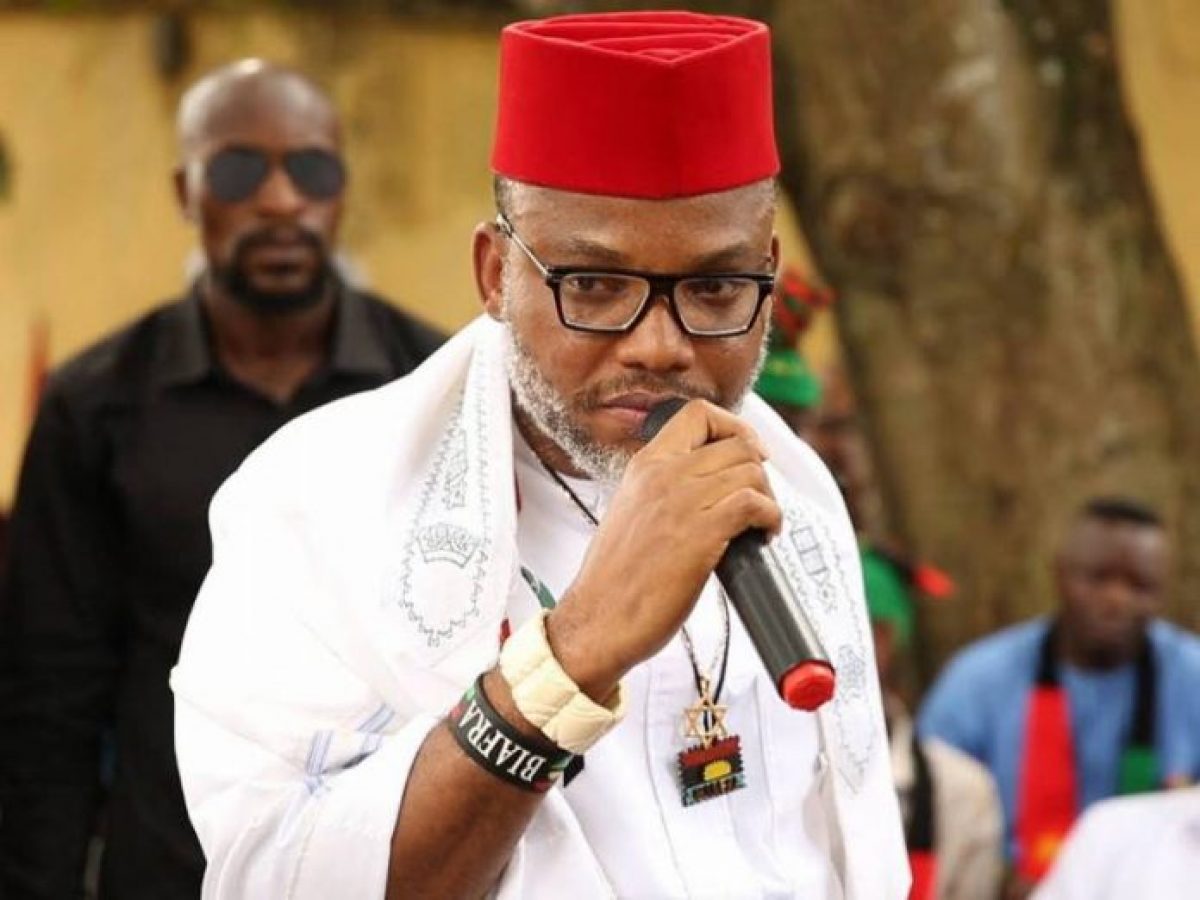ABUJA, Nigeria — Nnamdi Kanu, leader of the proscribed Indigenous People of Biafra, has been sentenced to life imprisonment after a federal high court in Abuja found him guilty of multiple terrorism charges.
The ruling, delivered on Thursday, November 20, 2025, by Justice James Omotosho, marks the most consequential judgment yet in the federal government’s long-running case against the separatist figure.
Kanu was handed life sentences for counts 1, 4, 5 and 6 of the seven-count charge, with additional sentences of 20 years on count 3 and five years on count 7.
All sentences will run concurrently.
Justice Omotosho said the prosecution had “successfully established every allegation” and that Kanu “offered no credible defence”.
The judge added that the defendant “deliberately refused to challenge the evidence presented in court”.
He described Kanu as “a person who cannot be allowed to remain in the company of sane minds” and referred to him as an “international terrorist”.
The court held that his actions, which the judge said constituted “brutal force and terrorism”, led to the “bloodshed of innocent citizens”.
During the proceedings, Adegboyega Awomolo, senior counsel for the federal government, urged the court to impose the death penalty as prescribed by the Terrorism Prevention Amendment Act 2013.
“The only sentence Your Lordship can impose for counts one, two, four, five and six is death,” the prosecutor said.
However, Justice Omotosho rejected the request, saying that while Kanu’s crimes merited the maximum punishment, he opted for a life sentence “to show mercy”.
He cited religious guidance in his decision.
“This court is only being merciful to him because we have to be merciful as enjoined by our Lord Christ Jesus Christ,” he said.
“The court is moved by chapter 23, verse 23 in the book of Matthew.”
He noted that the death penalty is increasingly condemned globally and said that, “in the interest of justice”, the court would impose life imprisonment rather than execution.
Justice Omotosho criticised Kanu’s conduct throughout the trial, saying he “remained arrogant, cocky, and full of himself without realising the magnitude of his crime”.
He said Kanu showed no remorse and exhibited a “tendency of violence”.
The court ruled that Kanu should not be held at Kuje prison, describing it as unsuitable given concerns about his behaviour.
Instead, he is to be placed in a secure facility under the supervision of the Office of the National Security Adviser.
The judge further ordered that Kanu must not be allowed to use electronic devices without direct oversight.
Items retrieved from him, including the transmitter allegedly smuggled into the country, were ordered forfeited to the federal government.
Kanu’s sentencing comes after years of legal battles, detentions, and controversy surrounding his activism and the activities of IPOB, which was designated a terrorist organisation by the Nigerian government in 2017.
His conviction and imprisonment are expected to intensify political and regional tensions, particularly in the South-East, where his supporters maintain he is a political prisoner.
The defence is expected to appeal the ruling in the coming days.







